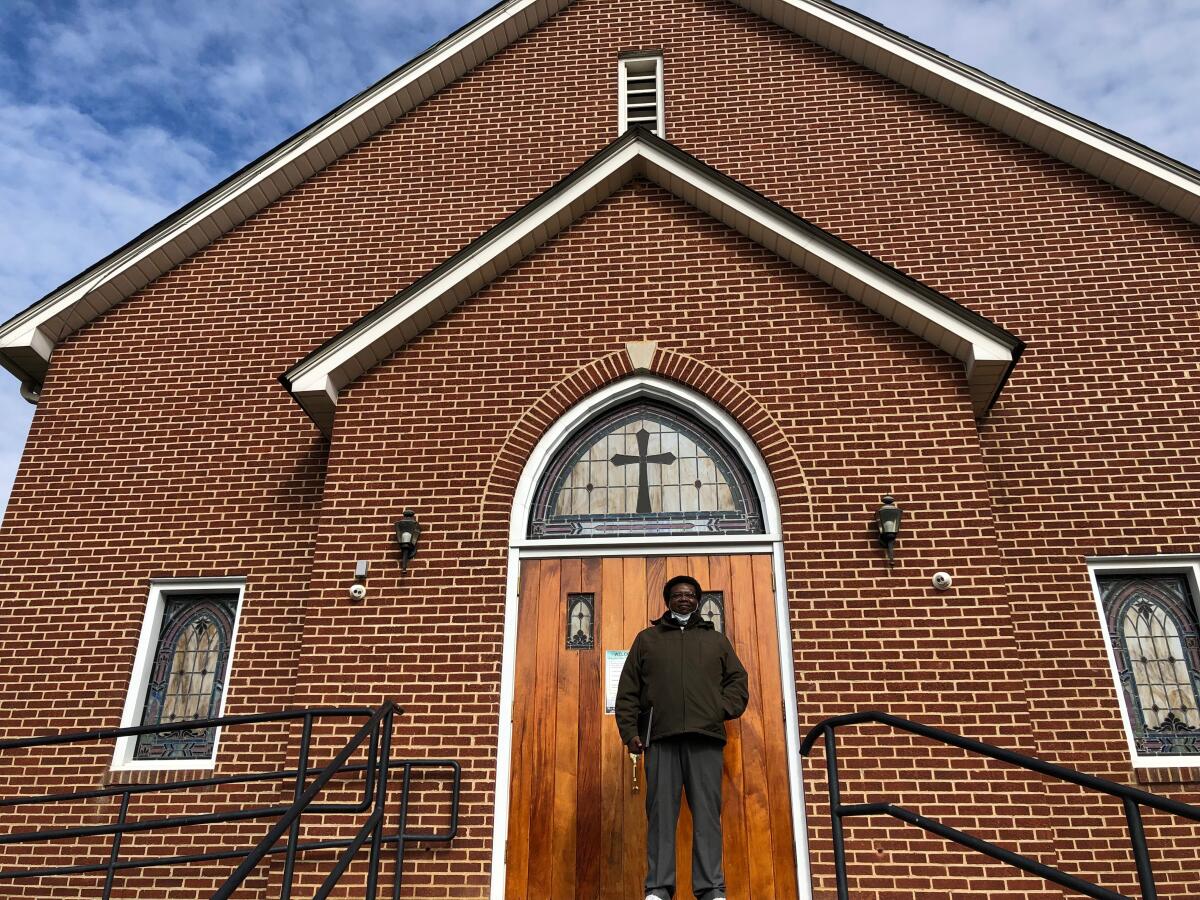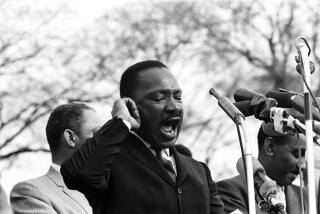Column: Can America break through the tribalism of Sunday mornings?

Last month, I reached out to my friend Mac Powell, asking for suggestions for new music. Powell was the lead singer of the Christian rock group Third Day. After the group split up, he went solo.
He pointed me in the direction of a new group formed in Atlanta called Maverick City Music, adding, “diverse group too. It’s beautiful.”
I immediately fell in love with their sound but did not watch any of their music videos until this week. That’s when I saw the beauty Powell was talking about.
Starting with last year’s single “Man of Your Word,” I found myself not only hypnotized by the unbridled joy in their worship, but by the kaleidoscope of humanity.
“This is what the church was meant to look like,” I thought as tears formed in my eyes. Yet right now, church life can feel like what Martin Luther King Jr. described on “Meet the Press” in 1960: “I think it is one of the tragedies of our nation, one of the shameful tragedies, that 11 o’clock on Sunday morning is one of the most segregated hours, if not the most segregated hour, in Christian America.”
It is not surprising to see Sunday mornings reflect the rest of the days of the week in America. I know for a lot of white people when they see things like rich Black athletes talking about oppression or the election of a Black president, the idea that systemic racism is a thing induces eye rolls. But like it or not, our past shapes our present with regard to race, even in the body of Christ. The Black church — like Black History Month — was born in response to exclusion. That’s not an opinion. It’s a truth still waiting for resolution.
In his 1845 memoir, “Narrative of the Life of Frederick Douglass,” the great orator and abolitionist wrote, “Between the Christianity of this land, and the Christianity of Christ, I recognize the widest possible difference.”
More than 170 years later, Maverick City Music was formed, partly for the same reason. Even in music and ways of worship, it’s a struggle to reach understanding.
“It’s really having those hard conversations,” said Chandler Moore, a Black musician and member of the group in a 2020 interview about the tendency for the Christian music industry to catalog artists based on race.
“It sucks that we have to have that conversation, but it’s just a real, real thing that I feel like the Lord is using Maverick to highlight: Is his music about color or is music about what you’re saying?”
One of the themes that the group talks about often is that its diversity is intentional. Meaning it purposefully created a space where everyone and every sound is welcomed.
Now I know it is supposed to be the mission of nearly every church to create a space for everyone. But you don’t need to be a theologian to see we’re not doing a very good job of it. Obviously, this isn’t true in every case. As a former attendee of Mars Hill Bible Church in Michigan, which was founded by the “Love Wins” author Rob Bell, I’ve been blessed to be a part of a multiracial congregation. But if year after year, decade after decade, century after century, the same observation about church segregation is on repeat, rooted in generations of racism in the pulpit and in the pews, that experience feels more like an outlier.
Perhaps instead of taking cues from the country, American churches could seize this moment of political crisis to set an example for desegregation. Perhaps now is the time for congregants and their pastors to be the loudest voices against the racism and hatred that propelled the Jan. 6 insurrection and is threatening our constitutional democracy.
That means making hard moves — like attending a church where the members aren’t also your neighbors. Connecting with congregations in other parts of town, where you are a stranger. Inviting strangers into your sanctuary. None of this is easy. But what choice do we have if we are to break through the tribalism of Sunday mornings?
King said in that 1960 interview, “Any church that stands against integration and that has a segregated body is standing against the spirit and the teachings of Jesus Christ, and it fails to be a true witness. But this is something the church will have to do itself.” Sixty years later, the majority of American congregations are still segregated.
Like many, I’ve been in somewhat of a dark place since the domestic terrorist attack at the Capitol. As a Black man, how could I not be with Confederate flags in the halls of Congress, nooses swinging nearby, white supremacists flying their banners proudly and Republicans in Congress excusing — if not embracing — the hate.
Millions of Americans — indeed, in churches — had difficult conversations through a summer of demonstrations after the killing of George Floyd. All that energy spent speaking up and seeking justice just to be smacked in the face with a vicious reminder of white privilege on Jan. 6.
And standing at the gates guarding that privilege are elected officials, many of whom are white and consider themselves Christian. How vexing it is to see these officials be more concerned about their political careers than the ramifications of acquitting the person who began his political ascendance with a racist attack on the country’s first Black president, launched his bid for the White House by calling Mexican immigrants rapists and drug dealers, and incited an insurrection saturated with racist and anti-Semitic imagery.
How could I not be in a dark place?
Then in the past few weeks, I found some light. A reminder of what we as Christians were called to be. A reminder found in the melody of a group of multicultural musicians working together for his glory, encouraging us: “All things are possible / When we believe / Old chains are breakable / When we receive.”
@LZGranderson
More to Read
A cure for the common opinion
Get thought-provoking perspectives with our weekly newsletter.
You may occasionally receive promotional content from the Los Angeles Times.











